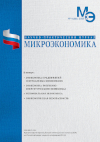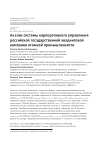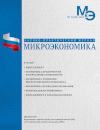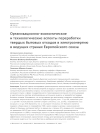Analysis of the corporate governance system of the Russian state holding company of the nuclear industry
DOI: 10.33917/mic-4.111.2023.56-68
On the basis of transactional analysis, the model of interdependence of the three main categories of corporate governance of Rosatom Group is considered. Having analyzed the management structures of the joint-stock company and taking into account the desire of Rosatom Group to maximize shareholder profits, we believe that Rosatom Group was created in accordance with the Anglo-Saxon model of corporate governance. One of the problems of corporate governance is that the company’s principles enshrined in the Code of Business Conduct and Business Ethics of Rosatom State Corporation lack an element of innovation, and the company’s mission poorly reflects it, despite the “innovative development program”. The problem of mismatch of principles in such a large corporation as Rosatom, of course, at some point may have a negative impact on the internal environment. It is proposed, in order to optimize corporate governance processes and accelerate managerial decision-making, to reproduce a comprehensive automated database on the corporate ownership structure of Rosatom Group organizations in the nuclear industry.
References:
1. Astakhov V.V. Key factors of increasing the competitiveness of a knowledge-intensive enterprise in the nuclear industry. Problems of management theory and practice. 2019;5:59-67. (In Russ.).
2. Bezpalov V.V., Sizova D.A. Ensuring economic security of the energy sector under restrictions. Industry: economics, management, technology. 2022;1(3-4 (3)): 45-58. (In Russ.).
3. Boyko A.A. The impact of the Covid-19 pandemic on the global state of the nuclear industry in the long term and the prospects of Rosatom State Corporation. Geoeconomics of energy. 2021;13(1):88-99. (In Russ.).
4. Boyko A.N. Rosatom State Corporation: assessment of strategic choice in the context of the results of activities. Management and business administration. 2022;3:71-84. (In Russ.).
5. Dubrova M.V. Financial statements of state corporations as an aggregator of financial transactions on the example of GC Rosatom. Financial life. 2022;2:121-128. (In Russ.).
6. Zakharova E.A. Comparative analysis of target ERP systems on the example of Rosatom State Corporation systems. Bulletin of the Central Russian University Educational Consortium. Information technology. 2022;2(20):56-60. (In Russ.).
7. Kalin D.I. Assessment of the competitiveness of Rosatom State Corporation in the field of innovation. Beneficiary. 2018;23:32-37. (In Russ.).
8. Klimovsky V.V., Semenova A.G. The influence of personnel motivation on the efficiency of the enterprise (on the example of Rosatom State Corporation). Internauka. 2020;1-1 (130):81-83. (In Russ.).
9. Kondratova K.S. Features of the organization and economic activity of state corporations in the Russian Federation (for example, Rosatom State Corporation, Rusnano State Corporation and others). Forum of Young Scientists. 2018;12-2 (28):1060-1066. (In Russ.).
10. Letaeva T.V. Legal aspects of corporate social responsibility of Rosatom State Corporation. Law and order: history, theory, practice. 2014;2 (3):161-166. (In Russ.).





